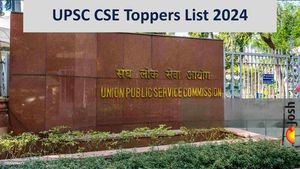The proposal known as CNH Social has sparked significant debates in the Chamber of Deputies. This initiative aims to utilize funds from traffic fines to finance the licensing of low-income drivers. As of April 17, 2025, the proposal has lingered on the plenary agenda for three weeks, awaiting a vote. During Holy Week, sessions are conducted remotely, with deputies participating and voting via their mobile phones. The President of the Chamber, Hugo Motta, is currently on a private trip, which has contributed to the postponement of the vote.
The CNH Social represents an effort to democratize access to driver’s licenses, allowing more Brazilians to obtain their licenses without the financial burden that typically accompanies such a process. The proposal seeks to allocate part of the money collected from traffic fines to subsidize the licensing process for low-income individuals. This includes covering costs associated with driving schools, medical exams, and license issuance fees.
The goal is to facilitate access to licensing for those who might otherwise be unable to afford these expenses. In addition to promoting social inclusion, the CNH Social could help reduce the number of unlicensed drivers on the roads, thereby improving traffic safety. The proposal is still under discussion but has already garnered support from various sectors of society, who view it as a means to foster social justice.
What benefits are expected? The implementation of CNH Social could yield numerous advantages for society. Notably, it may increase employability for low-income individuals, as many job opportunities require possession of a driver’s license. Furthermore, the measure could encourage the formalization of drivers who currently operate illegally. Another anticipated benefit is the enhancement of traffic safety. With more properly licensed and trained drivers, a reduction in accidents and infractions is expected. This could also lead to a more organized and safer traffic system for all road users.
However, the approval of the CNH Social faces several challenges, including budgetary concerns and the necessity for consensus among lawmakers. The allocation of traffic fine revenues for this purpose requires budget adjustments and may encounter pushback from sectors advocating for the use of these funds in other areas. Additionally, implementing the project necessitates an efficient system for selecting beneficiaries, ensuring that resources reach those who genuinely need assistance. Transparency and oversight will be crucial for the initiative's success.
The future of CNH Social in Brazil hinges on political mobilization and societal support. If approved, this measure could mark a significant step toward social inclusion and the democratization of transit access in Brazil. Although the project is still in the discussion phase, it has sparked interest and anticipation among those who believe in a fairer and more accessible traffic system. With ongoing discussions and the active involvement of parliamentarians, it is hoped that CNH Social will soon be voted on, bringing substantial benefits to low-income populations and enhancing traffic safety in Brazil.
On April 15, 2025, during the Easter holiday, the CNH Social bill remained on the agenda of the Chamber of Deputies without progress toward a vote. Amid the holiday, parliamentarians registered their presence and voted remotely. The President of the Chamber, Hugo Motta, was abroad with his family, which contributed to the delay in voting. Alongside the CNH Social bill, a proposal for a Parliamentary Commission of Inquiry (CPI) regarding the Trafficking of Animals and Wild Plants was also on the agenda. This proposal aims to criminalize the irregular commercialization of ornamental fish and the large-scale sale of wild animals.
As the CNH Social initiative continues to be debated, it reflects broader discussions about social equity and access to essential services in Brazil. The allocation of traffic fine revenues for driver's licenses could represent a transformative shift in how the government approaches issues of mobility and employment for low-income citizens. With the right political will and societal backing, the CNH Social could pave the way for a more inclusive and safer driving environment.




